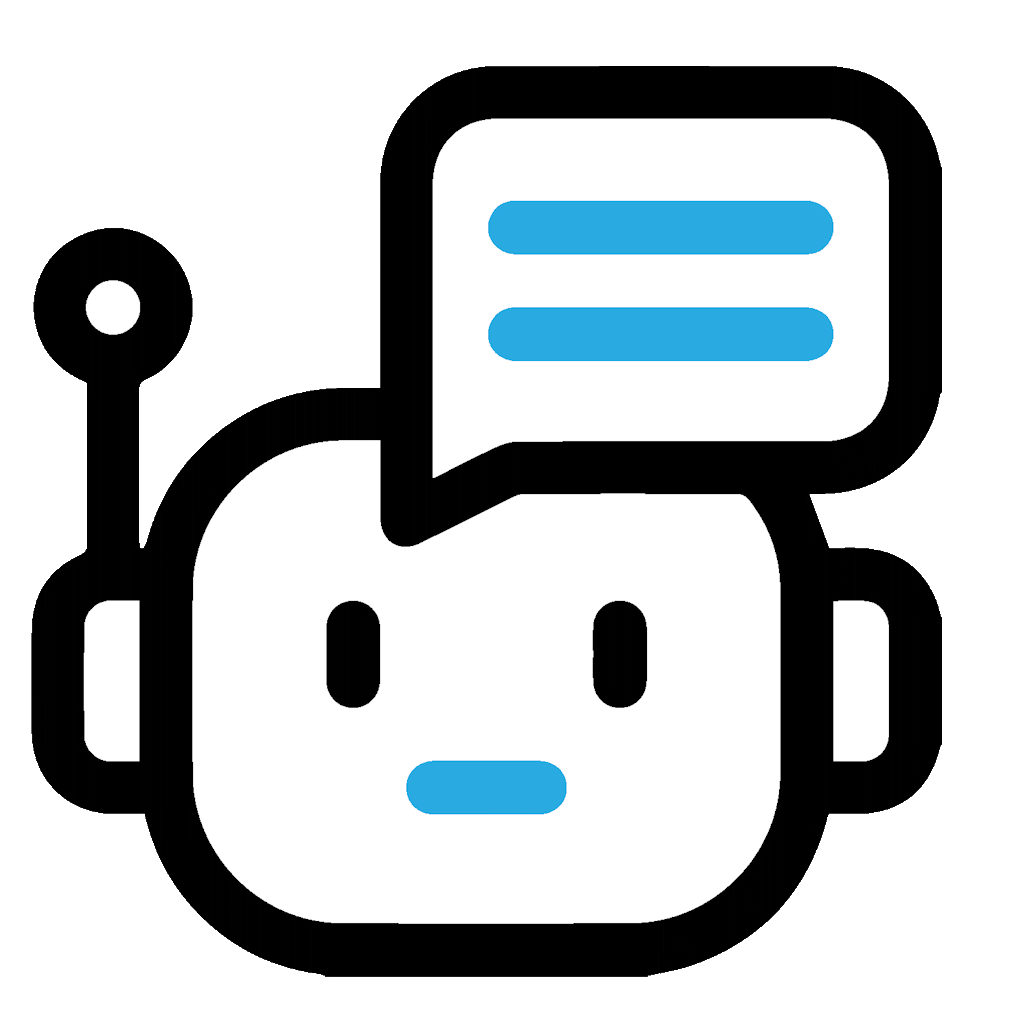Maintaining a conducive environment in the workplace not only doubles productivity but also results in the achievement of long-term organizational goals. Setting solid examples that amend the behavior of team members to follow suit creates a healthy atmosphere at the workplace. With the commercialization of AI applications, ethics in the workplace has become a diverse phenomenon that has yet to be explored. Researchers are experimenting with the exploration, implementation, and results of AI ethics in workplaces.
With the rapid deployment of AI applications at offices, schools, universities, and organizations, it is imperative to see how AI ethics at workplaces unfold. Its active implementation helps businesses improve team efficiency, automate tasks, make better decisions, promote growth productivity, and achieve business goals.
AI Application at Workplaces
AI changes the modern workplace. It automates tasks, analyzes large amounts of data, and improves decision-making. AI’s role keeps growing in areas like recruitment and customer experience. This offers businesses more efficiency and innovation. Understanding AI’s applications and benefits is important. It helps to ensure ethical and responsible use in workplaces.
AI is common in many workplace tasks. It makes operations smoother and increases productivity. AI helps with recruitment and employee monitoring. It also aids in performance evaluations and decision-making. These uses help businesses reduce human bias. They improve efficiency and support data-driven management. However, there are ethical concerns. Issues about privacy, fairness, and accountability need attention for responsible AI use.
- Recruitment and Hiring: In recruitment and hiring, AI helps HR teams. It screens resumes and analyzes job applications. AI can even conduct initial interviews. Automated hiring platforms use machine learning. They identify the best candidates based on qualifications and experience. However, businesses must check that AI hiring does not reinforce biases. They must avoid unfairly disadvantaging some groups of applicants.
- Employee Monitoring: Many organizations use AI tools for employee monitoring. These tools track employee productivity and engagement. AI systems look at work patterns and email communications. They analyze time spent on tasks to show performance insights. While this technology helps, it raises privacy concerns. Companies must balance monitoring with employee rights. This balance is important for a fair and ethical work environment.
- Performance Evaluations: In performance evaluations, AI improves the process. It provides real-time feedback and analyzes employee contributions fairly. AI tools check work quality, collaboration, and efficiency. They help managers make good decisions about promotions and raises. Transparency in AI evaluations is key. It helps to maintain trust and fairness in the workplace.
- Decision Making: AI helps business leaders with decision-making. It analyzes trends and predicts outcomes. AI gives data-driven recommendations to support strategic decisions. AI helps companies to use their resources better, to predict finances, and to connect with customers. AI-powered decision-making makes work faster, but human oversight is important to stop ethical problems and unexpected issues.
Benefits of AI in the Workplace
AI gives businesses many benefits, such as better efficiency, smarter decisions, and nicer customer experiences. AI can do repetitive tasks and look at complex data. This lets employees focus on more important and creative jobs. However, companies need to use AI in a good way to get the best results and lower risks.
- Efficiency and Productivity: AI makes it easier to do routine tasks that take a lot of time. This helps employees to work faster. Chatbots, virtual assistants, and automated workflows make operations run smoothly and reduce the work of manual processes. This means businesses can use their resources better and work more productively.
- Data-Driven Decisions: AI helps organizations make better choices by looking at large amounts of data and finding patterns. In marketing, finance, and operations, AI insights help businesses improve their plans and react to market changes better. By using AI to make decisions, companies get a better position than their competitors and make fewer mistakes caused by human biases.
- Enhanced Customer Experience: AI is important in improving customer service through personal touches and quick replies. AI chatbots, recommendation engines, and tools for sentiment analysis help businesses to know what customers want and like. This makes users happier and builds stronger relationships with customers.
By knowing how AI works and what benefits it brings to the workplace, organizations can use this technology for new ideas, better efficiency, and to keep good ethics.

Ethics in AI-Driven Workplaces
AI is now a big part of how workplaces run, but ethical issues with its use must be looked after carefully. AI systems can bring biases, hurt employee privacy, and make decisions without clear human control. AI can cause problems if it does not have proper safeguards. It can make discrimination worse and invade personal space. It can also create a workplace where employees feel watched instead of empowered. Companies need to implement AI in an ethical way. They must focus on fairness, privacy, and transparency. This way, technology can help employees and organizations without causing harm. Here are some important ethical points that companies must think about when using AI at work.
1. What is Bias in AI?
Bias in AI happens when algorithms create unfair outcomes. This can occur because of faulty training data, programming mistakes, or human biases in the system. AI learns from past data so it can take on existing social biases. This can lead to decisions that unfairly affect certain groups. Bias in AI can influence hiring, promotions, and evaluations in the workplace. It is a big ethical problem.
2. Examples of Bias in Hiring
AI hiring tools can sometimes favor certain groups over others. This can accidentally discriminate against women, older people, or minority groups. For example, an AI system that learns from past hiring data might prefer male candidates. This can happen if past hiring favored men. Such biases can limit diversity and keep discrimination in place instead of creating equal chances.
3. Ways to Reduce Bias
Companies need to use diverse data to train their AI systems. They must also check their AI regularly and have humans oversee decisions made by AI. Transparent development of AI can help organizations find and fix biases before they create problems. Businesses should have AI frameworks that promote fairness and match their hiring and workplace policies.
4. Collecting Personal Data
AI systems gather a lot of employee data. This includes work patterns, communication logs, keystrokes, and location tracking. Collecting data can improve efficiency and decision-making at work. However, it also raises ethical questions about privacy and consent. Employees must know what type of data is collected. They must also know why the data is collected. They should understand how the data is protected from misuse.
5. Surveillance and Monitoring
Many companies use AI tools to monitor employee productivity. These tools can assess performance and analyze workplace behavior. While these tools can help businesses, too much monitoring can make employees feel uncomfortable. It can also create anxiety and lower job satisfaction. When companies watch employees too closely, it can build distrust. Organizations must respect personal space while tracking performance.
6. Transparency and Privacy
Organizations need to keep AI data collection clear and honest. They must protect employee privacy rights. Companies should have clear rules about AI monitoring. Employees should know what data is collected and how it is stored. The ethical use of AI requires respecting employee trust. Monitoring practices should follow legal and ethical rules.
7. Responsibility for AI Decisions
AI decisions affect employees a lot. They impact hiring, promotions, and discipline. When AI makes a mistake, it is important to find who is responsible. Businesses need clear rules for responsibility. AI consultants at organizations should check AI decisions and correct them when needed. Without responsibility, AI can make unfair decisions in the workplace.
8. Explainability of AI Systems
AI transparency needs to be clear to build trust in AI decisions. Employees must understand how AI analyzes data. They should know how AI makes decisions, especially when it affects their jobs. Black-box AI models make it hard to see how decisions are made. If companies explain AI reasoning, employees can trust the results.
9. Ethical Guidelines for AI Use
Organizations should create clear ethical rules for using AI at work. These guidelines should help fairness and accountability. They should also protect privacy and stop AI misuse. A company can create an AI ethics committee or task force. This group can help with AI adoption. It can ensure that AI fits with company values and follows the law. Regular AI ethics training can teach employees about responsible AI use. It can also show them the impacts of AI.
It is important to ensure ethical AI use in the workplace. This helps to keep fairness and protects the rights of employees. It also builds a responsible work culture with AI. Companies should deal with bias, privacy, and accountability issues early. This will help them to build trust with workers. It will also make AI more effective as a working tool. By focusing on ethical issues, businesses can make sure that AI helps with innovation. This way, AI will not create inequality or ethical problems.
Legal Framework and Regulations
AI is changing the modern workplace. Legal frameworks and regulations are very important for its responsible use. Governments and regulatory bodies around the world make guidelines for this. They look at data privacy, employment rights, and accountability for AI use. Companies must keep up with these laws. They need to avoid legal risks. They must also follow new regulations. Here are some important legal issues that businesses must consider when using AI at work.
- Data Protection Regulations: Laws like the General Data Protection Regulation (GDPR) control how AI ethics in businesses handle employee data. Organizations must be honest. They need to get proper consent. They must also put data security measures in place.
- Employment Law Considerations: AI can be used for hiring and performance reviews. These tools must follow employment laws. These laws protect workers from unfair treatment. Legal frameworks make sure that AI does not violate employee rights.
- Proposals for AI Governance: Governments and regulatory bodies create new models for AI governance. These models address ethical issues, bias, and accountability. These proposals focus on making AI decisions clearer and fairer.
- Industry-Specific Regulations: Different industries are starting to have their own AI rules. Healthcare and finance are two examples. These rules help them follow safety, privacy, and ethical guidelines that meet their special needs.
It is important for businesses to follow AI laws. This helps them avoid legal problems. It also helps them keep trust with their workers and stakeholders. AI laws change often, so companies need to change quickly. They must add ethical AI practices to their work plans.

Implementing Ethical AI Practices
To use AI correctly in the workplace, businesses need a clear plan and ethical certification. This plan should focus on fairness, clarity, and responsibility. Ethical AI means having clear rules, listening to many people, teaching workers, and checking AI systems regularly. If there is no good plan, AI can cause biases, invade privacy, or make bad decisions for workers. Companies that set ethical rules will build trust and make AI work better. Here are important steps for organizations to use ethical AI well.
1. Create Basic Values
Organizations need to set ethical rules for AI use. These rules should include fairness, clarity, and responsibility. They should match company policies and laws. This way, AI decisions do not hurt workers or increase biases. Basic values are the starting point for good AI governance.
2. Involve Many People
Using ethical AI needs many people’s input. This includes workers, managers, data experts, and outside specialists. Listening to many voices makes sure AI rules deal with real problems and support fairness. Companies that include many people create a better and more responsible AI system.
3. Teach Workers About AI Ethics
Workers need to learn about AI in the workplace. They should know its ethical problems and their roles in using AI tools. Awareness programs should focus on data privacy. They should also focus on bias reduction. They should focus on the ethical impacts of AI decision-making. Employees can help keep workplace standards ethical if they understand AI ethics.
4. Leadership Development
Business leaders have an important role in using AI ethically. They need training to find ethical risks. They need training to make responsible AI decisions. They need training to handle ethical problems. Good leaders create a culture of accountability. This helps AI to match company values and laws.
5. Monitoring AI Systems
Organizations must check their AI systems regularly. They need to check AI performance. They need to find biases. They must make sure they follow ethical rules. Regular checking helps find risks early. This stops AI systems from causing harm. Businesses that check their AI tools keep trust and credibility.
6. Revisiting Policies and Practices
AI technology changes quickly. This means organizations must change their ethical rules often. They need to review AI practices. This makes sure that ethical rules stay good and useful. Companies that adjust to new AI problems and laws show they care about responsible AI use.
Using ethical AI is not just one task. It is a process that needs everyone in an organization to care. By building a strong ethical base, promoting AI ethical education, and checking AI systems constantly, businesses can use AI benefits. They can also ensure fairness, accountability, and trust in the workplace.
Future of AI Ethics in the Workplace
AI technology is changing quickly. It brings new trends for ethical use at work. Advances in machine learning, automation, and data analysis make AI more strong and efficient. However, these changes also create worries about bias, privacy, and clear decision-making. As AI keeps improving, businesses must learn about new trends. They need to make sure they use AI ethically.
Organizations are important for setting ethical standards for AI work. Companies need to make clear rules. They must provide training for employees. They need to set up groups to check AI systems. When companies focus on fairness, accountability, and transparency, they help both employees and employers. This also reduces risks and worries about ethics.
Even with the power of AI, humans must keep watch to make good choices. AI must help humans interact with machines, not take their place. This is very important in areas like hiring, promotions, and evaluations. Employees and leaders must watch AI systems carefully. They should find any biases and step in when they have to. Keeping human oversight ensures that AI is a helpful tool, not something out of control.
Conclusion
Using AI in a fair way at work is not only important by law. It is also a moral duty. AI systems change how companies hire and monitor employees. They also affect decision-making. Organizations must act carefully to stop bias and protect privacy. They need to stay accountable. Ethical AI practices build trust among workers. They also promote inclusivity and fairness. This makes a better workplace where technology helps human choice, not replaces it. By creating strong ethical rules, companies can make sure AI is good and improves productivity without harming core workplace values.
The duty for ethical AI does not belong to one group alone. Employers, employees, lawmakers, and AI developers must work together. They should create guidelines that focus on fairness, transparency, and accountability. Organizations must keep investing in education. They have to check their systems regularly. They should also improve AI processes to meet ethical standards. Open talks about AI ethics can help businesses solve problems and make better AI rules. By taking action now, companies can build a workplace where AI and humans work well together. This way, technology serves people better.

